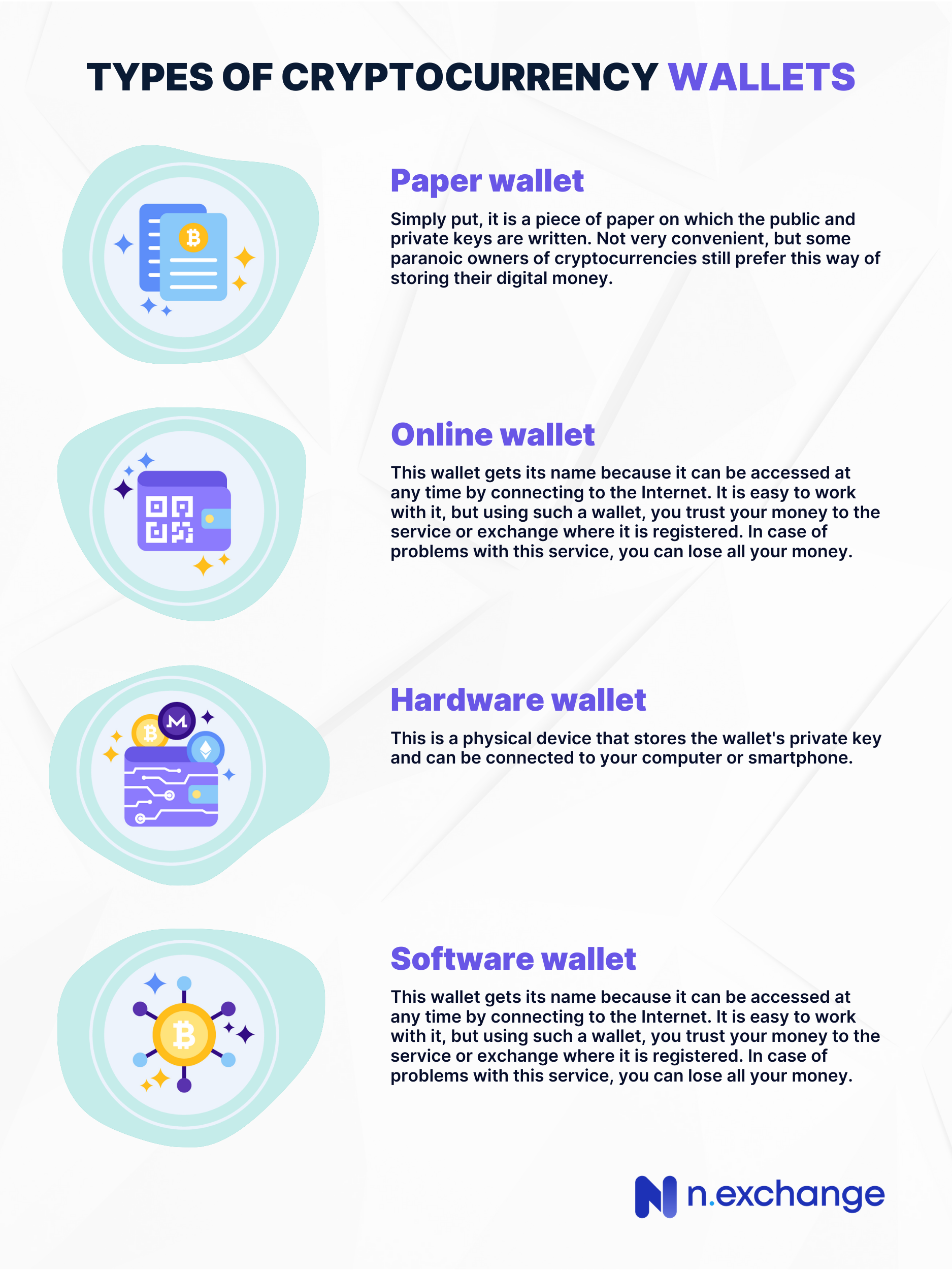Digital money is becoming more and more popular every day and is increasingly replacing paper money, so the first question a future cryptocurrency owner asks himself is where to store it? Its difference from the money we are used to is that you can’t put it in a bank and hide it under a pillow. For this purpose, a cryptocurrency wallet was created.
A cryptocurrency wallet, as you may have guessed, is a place to store cryptocurrency. Digital money is completely virtual, so special software has been created to store it. There are a variety of wallets. Some of them can work with only one type of cryptocurrency, such as bitcoin, but there are also multi-currency wallets that allow you to store several kinds of digital money in one place.
Cryptocurrency Wallet Structure
One of the main elements of a crypto wallet is a private key. Most often, the key looks like a sequence of alphanumeric characters. This makes it difficult for attackers to hack the wallet.
The key looks like this:
С62638426783АB61F76BD45FL245AH31231.
As the name implies, this set of letters and numbers should only be known to you. An analogy to a private key would be the PIN code to your card or the username and password to access your bank account, where your assets are kept.
Never give your private key to anyone! You are not obligated to provide it, so you should never believe anyone who claims you need to give it to them. Scammers often pretend they are a Cybersecurity company or the government to encourage you to share it. Do not believe them!
A scammer who gets hold of a private key gets access to the cryptocurrency wallet and can dispose of the funds stored there at his discretion. Therefore, it is very important to take care of the security of your private key.

Types of Cryptocurrency Wallets
Cryptocurrency wallets are divided into several types:
- paper wallet
- online wallet
- software wallet
- hardware wallet
Let’s take a closer look at each of them.

Paper Wallet
Simply put, it is a piece of paper on which the public and private keys are written. Not very convenient, but some paranoic owners of cryptocurrencies still prefer this way of storing their digital money.
On the one hand, this approach can be considered safe, but on the other hand, the physical presence of the wallet makes it vulnerable. A piece of paper can be torn, lost, burned, and more.
Online Wallet
It’s the kind of wallet that is directly connected to the Internet. For example, when a user creates an account on any exchange, he automatically creates an online wallet.
This wallet gets its name because it can be accessed at any time by connecting to the Internet. It is easy to work with it, but using such a wallet, you trust your money to the service or exchange where it is registered. In case of problems with this service, you can lose all your money.
Hardware Wallet
This is a physical device that stores the wallet’s private key and can be connected to your computer or smartphone.
An ordinary USB drive can also be used as a hardware wallet, but security experts advise trusting more secure devices. In any case, it is considered the most secure, because keys are stored on devices not connected to the Internet. Disadvantages include the cost of a separate physical device, as well as the possibility of damage.
Software Wallet
This is special software that stores public and private keys and is responsible for processing transactions. It is installed on the user’s computer or smartphone.
Software wallets are divided into thick and thin. Thick ones store all the blockchain in the device’s memory, while thin ones use third-party resources for this purpose. Based on this, it is easy to determine the advantages and disadvantages of each.
A thick wallet requires a fairly large amount of disk space, which, for example, not every smartphone can provide, but it is more secure because it does not use third-party resources for its operation. A thin wallet is more mobile and convenient to use, but it is also considered the most vulnerable.
Based on the above, when choosing a wallet, it is important to consider the pros and cons of each in order to ensure not only convenient operation with your digital money, but also to maintain a high level of security.



